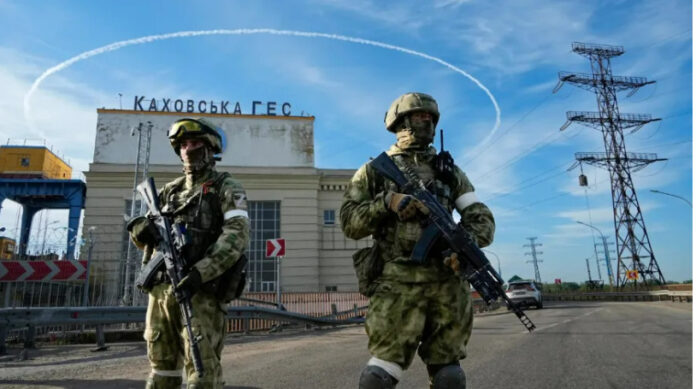In the 2nd article of this series, I will be discussing the context and current trajectory of Russia, America’s 2nd adversary. Recently, stimulated by the Russian invasion of the Ukraine in 2022, the discussion of Russia has intensified across a myriad of mediums, ranging from think tanks to schools. Oftentimes, we might conclude that Russia is violating the sanctity of Ukraine and intends to embark on what many authoritarian regimes would: global domination. However, if one were to examine carefully, Russia is fulfilling its crucial objective: undermining American power and consolidating its alliances with other anti-American governments. Whether exporting oil to China and India or appealing to African states, Russia seeks to create its alternative global order and politically weaken the US.
Recovery Process
Geopolitical ambitions did not end upon the fall of the communist government. Despite promising numerous democratic reforms to protect free speech and the press, Vladimir Putin began to consolidate his power by restricting media outlets, judicial power, and opposition parties. Creating a “cult of personality,” Putin appointed many of his colleagues from the KGB in important positions, while silencing his opposition (e.g. ban on Aleksei Navalny’s presidential campaign). Even though he maintained positive relations with the US and the West, Putin became skeptical of NATO’s expansion into Eastern Europe and pro-Western revolutions in Georgia and Ukraine. Russia’s relations with the West became further strained as Moscow was banned from the G8 in 2014 for its annexation of Crimea. The annexation occurred in response to mass protests against then Ukraine President Victor Yanukovych’s rejection of a deal to integrate with the European Union (EU).
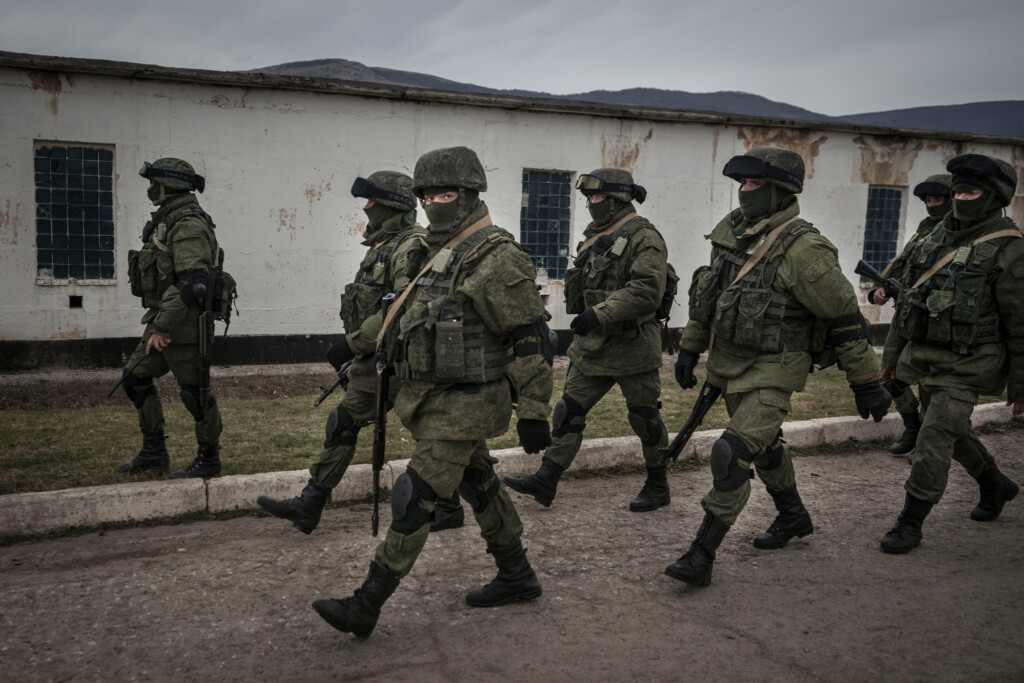
Geopolitical Gambits
Ukraine
Using the claim to demilitarize Ukraine and end the alleged genocide of its people, Putin invaded Ukraine in February 2022 after months of military buildup near Ukraine’s border. This nearly two year-old conflict has not only worsened US-Russia relations, but also increased the risk of a wider European conflict. Other implications would be arms control negotiations, energy security, cybersecurity, etc.
Furthermore, the Russo-Ukrainian War has damaged America’s geopolitical situation as Russia is now solidifying strategic ties with nations opposing the West, especially China. For example, trade between Russia and China surpassed $200 billion in a span of 11 months. Both Russia and China share a critical geopolitical objective: reduce American power.
Despite US and Western sanctions, the Russian economy defied economists’ expectations by remaining strong. Even though the ruble currency has lost around 33% of its original value, the Russian economy continues to fuel its war efforts with revenues from China, India, and other buyers of Russian oil and gas. Following its exclusion from the G7 in 2014, Russia began to extend its business operations to Central Asia and China. Specifically, Russian businesses established numerous tankers to bring Russian oil to their new customers. As it heads into 2024, Russia is planning to reassure its citizens of economic stability by bringing in revenue to compensate for the war in Ukraine.
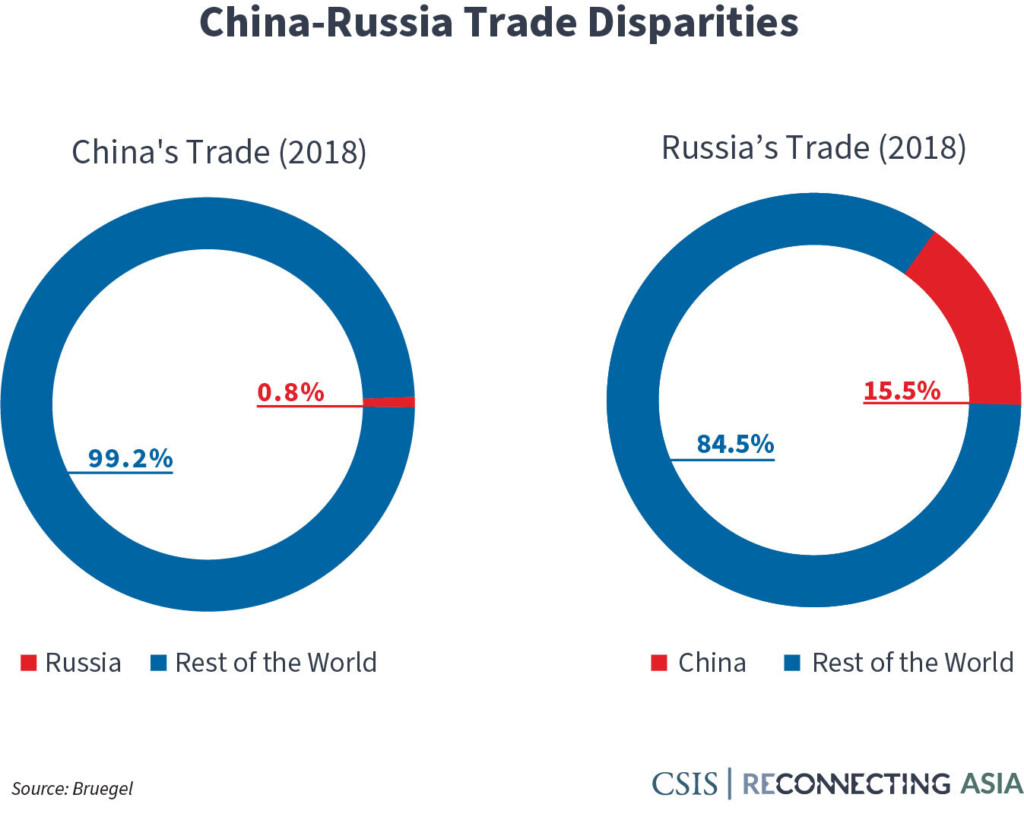
Africa
Appealing to the African continent, Russia is seeking to continue its Soviet predecessors’ work during the Cold War. Starting in the 1950s, many African states, especially the recently decolonized, aligned with the Soviet Union because they believed in the Soviets’ potential of provisioning aid. As a result, Moscow provided weapons, equipment, advisors, and most importantly, trust, for the hopeful African countries.
Capitalizing on America’s low engagement with Africa, Russia started to re-engage with the continent in the mid-2000s. As economic ties were forged, by 2021, 30% of Africa’s grain exports come from Russia. Since then, Moscow intensified its exporting of grain, coal, petroleum, and electronics, while importing essential food items (e.g. sugar). Despite investing less than the Soviet Union, Russia continues to be Africa’s chief arms supplier. For instance, Algeria and Egypt have purchased billions worth of military equipment from Russia since 2013, including combat aircraft and missile systems.
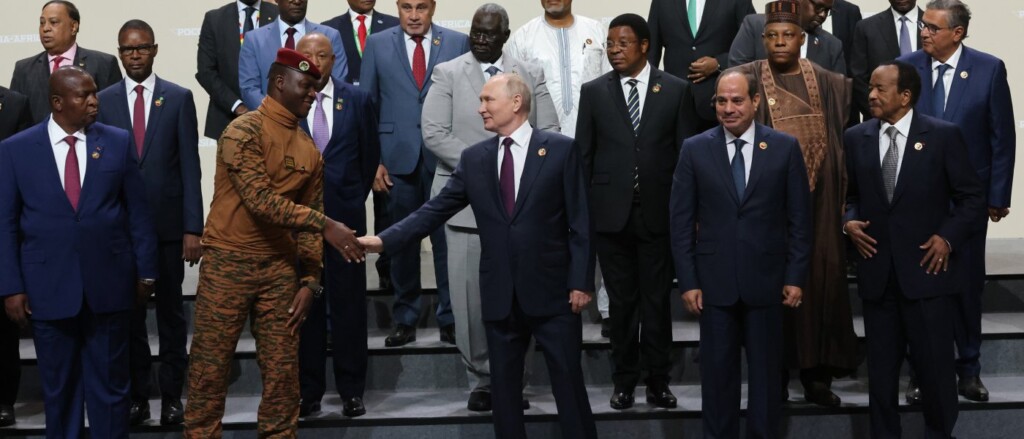
Since 2014, Russian private military companies (PMCs) have provided military training and private security to numerous African states, such as Sudan, Congo, and Mali.
“Russia effectively trades PMSC (private military and security company) services for access and economic concessions in resource-endowed fragile states.” – Major Thomas Arnold, US Army
The most prominent of the PMC groups is the Wagner Group. Along with deploying mercenaries to Syria to protect their valuable oil and gas deals, Wagner has been involved in conducting training, running disinformation campaigns for certain regimes, and securing concessions in minerals (e.g. gold, diamond). For example, in the Central African Republic, Wagner has provided escort protection for government officials in exchange for receiving a share of the country’s natural resources.
Despite Wagner’s considerable losses in the Ukraine, Moscow will still have a strong incentive to retain its PMCs in Africa to not only ensure continual access to mineral reserves, but also destabilize US and Western partnerships in the region. Through their deployment of mercenaries, Russia is seeking to drain democracy in Africa and ensure that African countries’ policies align with their interests.
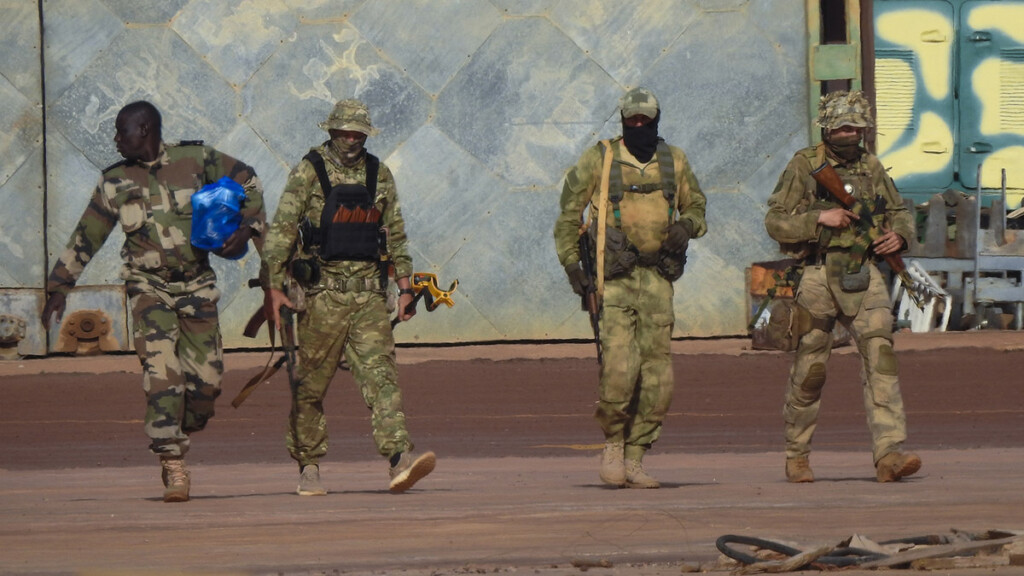
Technological Warfare
Currently, Russia is prioritizing the development of emerging and disruptive technologies (EDTs) to attain self-sufficiency and eventually technological superiority over its rivals, especially the United States. Moreover, Russia’s pursuit of EDTs aid their deterrence strategy and geopolitical leverage.
Despite the US and China leading the tech race, Russia has prioritized investment in a strategy similar to America’s first offset strategy by increasing its military’s nuclear capabilities. In 2012, Russia established the Advanced Research Foundation to invest in advanced technology, such as hypersonic vehicles & missiles, AI, and unmanned underwater vehicles (UUVs).
In 2019, Russia implemented a strategy for developing AI through 2030. Russia’s interest in AI occurs due to its desire for further development of maritime military capabilities and autonomous military systems. Also, by investing in AI, Russia seeks to become less dependent on foreign manufacturers and close the technology gap with the US and China.
How will Russia close the tech gap and level the playing field with the US? First, Russia will increase its industrial partnerships with non-Western nations, such as India and China. Specifically, Russia will secure cooperation on EDT projects. For example, Russia and India have cooperated on the BrahMos cruise missile, which have been sold to the Philippines and set to be sold to Vietnam and the UAE.
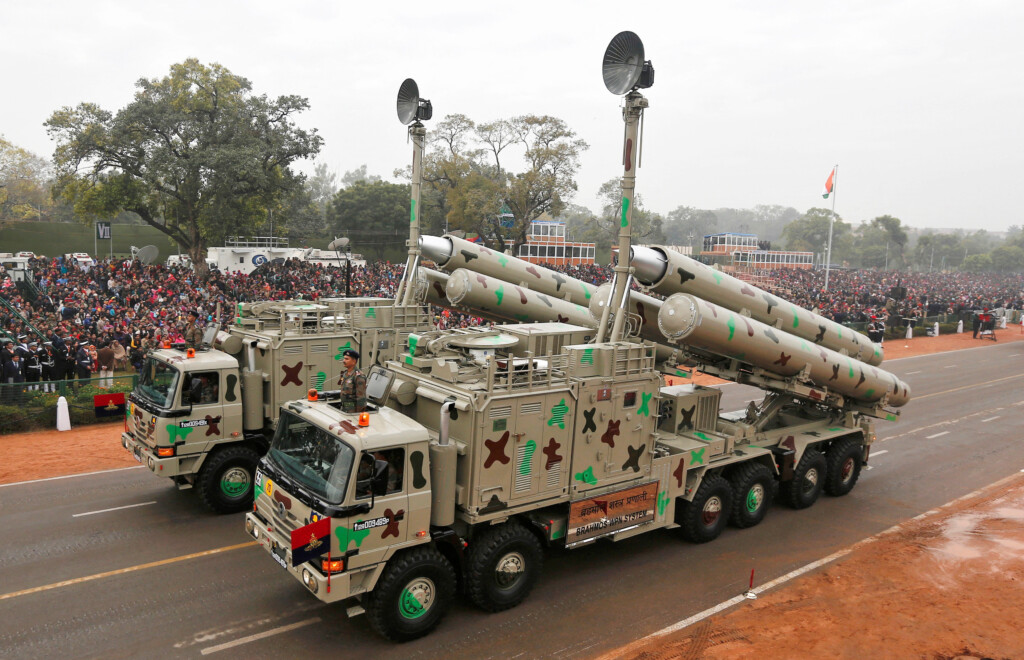
Second, Russia will minimize and possibly eliminate ethical standards of EDTs. Unlike the US and NATO, Moscow intends to strengthen its authoritarian control through mass surveillance with AI, similar to Beijing’s current policy.
Finally, Russia will enhance its capabilities in asymmetrical warfare. The development of EDTs (e.g. AI, big data) is designed to supplement a military’s cyber and psychological warfare. In Russia’s case, EDTs will continue to aid Putin’s ambition to disrupt NATO’s peace and close the geopolitical gap with the US.
Conclusion
After all, Russia knows it’s not too far behind the US in terms of innovation and geopolitical power. Therefore, Russia is working furiously to shrink its gap with the US to attain equal status, potentially dislodging the US as the main military powerhouse. Along with China’s economic influence and Iran’s ambition to dominate the Middle East, Russia is creating a new international order, weakening the US and its allies and democratic-aspiring nations.
Stay tuned for the next article on Iran.


